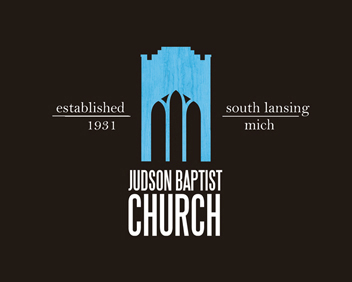Did Jesus Die To Make You a Zero?
By the Rev. Zachary Bartels
I’ve always been partial to the phrase “by the numbers.” (I also like “according to Hoyle,” but that’s neither here nor there). As I understand it, this phrase finds its origin in a training manual for militiamen during the Revolutionary War. Each bayonet and rifle position in the manual was numbered. Hence, doing things “by the numbers” is to do them by the book, following proper procedure. That being the case, I truly like the idea of doing ministry by the book or “by the numbers,” especially considering that our Book is actually divided up into numbered chapters and verses.
But the church today is more concerned with just about every other set of numbers, particularly performance-based numbers—in fact, we’re obsessed with them. Pastors keep track of attendance trends compulsively (and who can blame us, since the first question everyone always asks upon learning our vocation is, “How many people in your church?”). We update the numbers of conversions, baptisms, and first-time potluck attendees.
And more recently, churches have even begun assigning numbers to non-numerical items. Some of the most popular books on church growth and “healthy churches” (by the way, ask any dermatologist and she’ll tell you that not all growth is healthy growth) are all about assigning numbers to churches and people. Surveys and quizzes must be filled out ad nauseum so that the church can be identified as scoring a 4 in “friendliness,” a 9 in “worship intensity,” and a big fat zero in “ever going to actually do anything with these survey results.” Other books actually assign individual people numerical values. The so-called “seekers” at a church service are level 2 humans, the church members are level 5, the woman who sits on half a dozen committees and also does the landscaping is a level 9, etc.
Needless to say, this kind of ministry by the numbers is upsetting to me. Despite all the noise about how “postmodern” we’ve become, the world continues to be obsessed with numbers (Cf. the omnipresence of online IQ tests, magazines promising that you can go down a dress size in two weeks, or the inordinate weight given to a “credit score,” which is mostly based on how much one loves staying in debt). But the church should not be falling into the same patterns, because they can be incredibly dangerous.
I recently saw a great example of this danger in the form of a giant banner hanging at the front of a sanctuary. It looked like this:

At first glance, you may be thinking, what’s the problem here? People do start out against God, then they are drawn to the cross, are saved (justified), and then they mature (are sanctified). Well, the problems that come with ministry by the numbers are often subtle, but grave. And the errors involved in boiling the mystery of salvation down into a cute little chart are manifold and I could go on for pages; but, I shall resist and just address the main problem that relates to my point (because I do have one).
To begin with, the paths to and from the cross are presented as one long “journey.” But they’re not the same thing; they’re qualitatively different, and here’s how: As Christians, you and I are involved in the process of reaching spiritual maturity. That’s a fact. While it is by God’s grace that we are sanctified (made holy in life, thought, and practice), we do have a role to play in pursuing the deeper things of God, in reading and internalizing the Scriptures, in putting to death the works of the flesh, etc.
But since the chart shows my pre-Christian life and my Christian life as one long continuum, it seems to at least imply that I was also instrumental in bringing myself from -10 (enmity with God) to my salvation at the cross. It shows a picture of a sinner slowly learning more and more, getting “righteouser and righteouser,” became less and less an enemy of God until the two of them become friends when they meet at the cross. This couldn’t be further from the Truth presented in Scripture. Even while an unbeliever is beginning to feel convicted of his sins, he remains God’s sworn enemy (a-10, if that helps) until the moment he is born again by the power of the Holy Spirit and his sins are washed away by the blood of Jesus Christ.
Yet the real danger in these numbers is that big fat goose egg under the cross; the idea that Christ’s ultimate act of sacrificial love, the death of God the Son on a tree, only accomplished bringing me back to zero so that I could start working my way toward 10. I can think of no quicker way to cheapen the cross. But sadly this has become a common way to think of salvation—by the numbers.
Let me hit you with some really good news: Jesus didn’t die to make you a zero. When someone puts his or her faith in Jesus and is justified (declared righteous in God’s sight), it doesn’t just take away his sins and put him back in a position of innocence like Adam and Eve, (How horrible would that be? Remember what happened to them. . . ) No, when Jesus died, he took your sin from you and he gave you his righteousness in its place!
If I had to try and put it by the numbers, I’d say it like this: you and I are sinful people in ourselves and as such. Before we were saved, our standing before God was -10 (or more realistically, the numbers on the chart should go way lower). If we were to stand before God on our own merit, we’d be found to have a huge sin debt, which would even include our attempts to redeem ourselves with good works. Therefore, when we died and were separated from God, we’d be getting exactly what we deserved.
But when Christ died, he had no sin at all—only perfect righteousness and obedience. In terms of the chart above, He didn’t stand before God the Father as a zero, but as a +10 (again, assigning any kind of number to Christ’s righteousness is toying with blasphemy, but I’m working with what the chart gave me).
That means that when Christ died, he not only bore your sin (paying for your -10 and bringing you up to zero), he also gave you his righteousness, his +10, or rather, his +∞!
There’s an old Christian cliché to help believers remember what “justification” means. It goes like this: “I’m justified, so it’s just-as-if-I’d never sinned.” That’s clever and it may be a useful memory aid, but it’s not accurate. You’re not just as if you stood in the Garden in a state of innocence. You have perfect righteousness imputed to you from Jesus Christ! (Romans 4:6). It’s “just-as-if-I’d” always obeyed!
And now the big question: SO WHAT? Does this stuff really matter to you and me in our day to day lives? You bet it does! If you’ve been born again and put your faith in Jesus Christ, you don’t default to zero, having to claw your way to a good standing based on your score or performance. (In fact, the process of sanctification should be on an entirely different chart). If you’re saved, you stand before your Heavenly Father clothed with the righteousness of Christ. +∞! That should give you the confidence, boldness, and perseverance to pursue spiritual maturity, knowing that your standing in God’s eyes is not at stake, and that your salvation rests solely in His strong hands.
How freeing is that?




